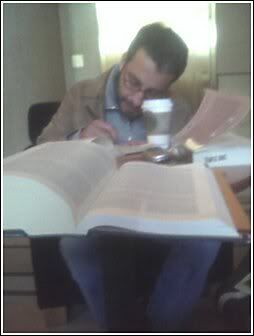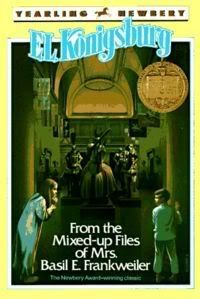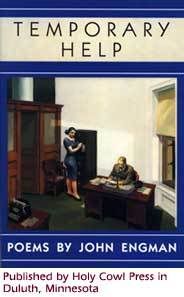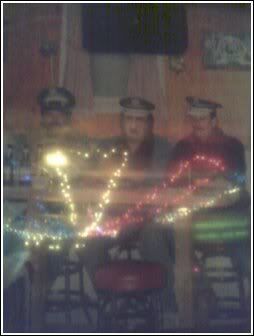Thursday, January 24, 2008
Country, and we like it that way.
Posted by
someone
at
12:05 PM
0
comments
![]()
Monday, January 21, 2008
Malibooty
http://www.newyorker.com/reporting/2007/12/24/071224fa_fact?currentPage=all
Thinking now of a quote I read ...
"The author, then, started life as a line of bullshit and to bullshit the author has returned. Ashes to ashes."
--
So I drafted a plot (with appurtenances) of an Entourage episode. The highlights indicate the revised text. This is the version I got back from my editor. *sigh* The original text can be found below.
In a major role-reversal, Vince and the guys are crashing at Drama's place. While Turtle tries to identify the senior Chase's whacked-out health food - "What's a psyllium husk, anyway?" - the man of the house returns, offering bagels and good news. Donna Devaney, an L.A. party girl from Drama's surprisingly lengthy past, has finally agreed to hook up with him. Plus, she has a hot friend for Turtle. Vince and E aren't sitting so pretty with the Medellin cut, so E tries giving Walsh some notes to spruce up the film. Predictably militant about protecting his vision, Walsh won't cooperate, and making things worse, has already sent a print to the Cannes Film Festival. E runs to Ari for a solution and settles on the option to ditch Walsh by selling the movie to Harvey Weingard.
Vince rolls with his brother and Turtle, promising not to steal their thunder, and they couldn't be more thrilled when he hops out at a stop light to join a random hottie in a convertible. She takes him to the home of her "family friend" to go swimming, which turns out to be Dennis Hopper's beach house. Hopper and his buddies tempt Vince into placing a $100,000 bet - that he can't cover - on a soccer game. The future holds less uncertainty for Drama and Turtle; their cougars are ready to pounce. Too bad for Turtle, Donna's "hot" friend Marjorie is twice his age, not to mention twice his size. But, in a typical turn of Drama's luck, Donna decides at the last minute to opt for Turtle, leaving Drama manhandled by Marjorie in the hot tub. Vince's soccer win comes through, infusing him with some much-needed cash, but he and E still differ on the direction they want to take 'Medellin.' When E says Harvey made an offer of $25 million, Vince throws him for another loop: Cannes accepted the film. "Maybe you should watch it again," Vince tells him.
ORIGINAL:
In an obviously insincere and illegitimate turn, Vince and his team of seventh grade intellects decide to open and develop a non-profit shelter for the homeless. While Turtle tries to identify the first of several economic bubbles that led us down this highway of shit - "What's a subprime mortgage, anyway?" - the man of the house returns, offering bagels and good news. Donna Devaney, an L.A. party girl from Drama's pointless and vacuous past, has made a donation of six million dollars towards their organization's endowment. Plus, she has continuous income pouring down on her from her investments in Finance, Insurance and Real Estate. Well, not so much real estate. Vince and E aren't sitting so pretty with the tax cuts for the wealthy, so E tries giving Walsh some advice on how to live humanely and meaningfully in an increasingly disproportionate society. Historically militant about his increasing anxieties and dystopic vision, Walsh won't reason, and making things worse, has already lost hope in the power of reason and has begun speaking of the cult of reason's responsibility for world wars. E runs to Ari for a temporary, but material, solution to a metaphysical problem and settles on the option to read more and think more.
Vince, his brother, and Turtle drive up and down Sunset Blvd, handing out hot meals to the displaced and hungry, promising not to compound the problem of homelessness through the creation of a dependency on temporary aid. They couldn't be more thrilled when he hops out and approaches several local businesses, securing the written agreement of over 85% of the area to provide assistance, jobs and donate a portion of their profits to food/shelter/general care to those in need. A woman working for a 501C3 called Up From Office Chairs! asks Vince if he wants to collaborate on a fundraiser. She takes him to the home of her "family friend" to do some groundwork, which turns out to be Dennis Hopper's beach house. Hopper and his buddies tempt Vince into placing a $100,000 bet - that he can't cover (along with 98% of the world's population) - that Hillary's going to get the nomination and it's going to be HRC vs. McCain. He also bets him that McCain's only running so he can cross it off his Bucket List, once and for all. The future holds the same degree of uncertainty for Drama and Turtle (as it does for everyone, everywhere); their 'consciousness raising' San Diego Zoo Wild Cats of the Brush promotional exhibit is off and running. Too bad for Turtle, his "adopted" cat has fallen ill with a mysterious malady, not to mention has recently mauled one of the handlers. But, in a typical turn of Drama's luck, Turtle's cat pulls through and even ends up saving a small child who fell into the cage while his parents were arguing. The cat approached the child, licked his wounds and carefully carried him between his jaws to the outstretched arms of the zoo keeper and then to the hysterical mom and shell-shocked dad, leaving Drama to wonder about the theodicean nature of life. Vince's soccer win comes through, infusing some of the 30+ million Americans who have been left behind with some much-needed cash, but he and E still differ on the direction they want to see the next economic bubble manifest (Vince is calling for biofuels and the support of environmentally conscious venture capitalists). When E announces that through grant-writing exercises he was able to get a super grant from Verizon, valued at $25 million, Vince throws him for another loop: "We're all going to die someday." Vince stares in the distance. "Yeah," he ponders, "you're right. Maybe we should say fuck it and start a T-shirt company; our logo will be the Clinton generation children all grown up; ironically posing on all fours, pulling on their shirt sleeves (stained by that afternoon's hot lunch), doing a stag leap in a purple unitard and bifocals, opening their legs and drooling, lolling, rolling, staring into their camera phones, wide eyed and mesmerized by the spandex proletariat…"
amd
Posted by
someone
at
12:19 PM
0
comments
![]()
Saturday, January 19, 2008
Friday, January 18, 2008
uhm,hmm,mmmhmm
Question One:
Question Two: What book is this person not reading?
Question Three: How is this different than American Apparel's ads/photos/prints
Question Four: How is this?
Question Five: And this?
amd
Posted by
someone
at
11:52 AM
2
comments
![]()
Wednesday, January 16, 2008
Up with American Apparel, If I Must
[First, a disclaimer: I have only seen Seasons 1 and 2 of Entourage, and my beef with the show is based on limited knowledge. I have not seen any of the seasons that won all the fancy prizes, so I don't know if the writing grew more complex as time went on. Arguing about AA being "better" or "worse" than Entourage, with citations, is therefore pointless. I would like to discuss, instead, the cultural space that these institutions occupy.]
It is now 2am, officially "super late" by my standard. The one-man audience for the Entourage v. American Apparel (hereafter: AA) throwdown grows impatient, and one hopes never to disappoint the Wag. I still do not know who it was that challenged me to this; as it's part of the charm, I'll choose to remain ignorant. But, the reasons themselves are clear. Both Entourage and AA are LA-based phenomena, both savagely feed from the local culture's chic trough like it was yesterday's tater skins, both equate pop culture's sense of the Beautiful with its notion of the Good, and, finally, both monger the cult of authenticity.* They are therefore hateful to me. But like any good hypocrite, I partake of both with relish. I have watched Entourage and will, in time, watch more. Also, as I write this I am wearing an article of clothing from AA--this red, hooded sweatshirt, staple of my personal aesthetic.
The final likeness, the authenticity-mongering, is where I actually think they differ most significantly. Entourage, I posit, is selling us the same old Hollyworld glamour life that we got, in the 90's, from Beverly Hills, 90210 and Melrose Place, and are currently getting from MTV shows like Newport Harbor and The Hills, except in the latter two the acting is fake (i.e. the "stars" pretend to not be acting). While the MTV shows sell themselves as portraying "real" people who are obviously fake, Entourage uses the Marky-Mark-Wahlberg-created-this-show premise to assert that these fake people are actually "real," as in "the real deal," or, at least, more genuine human beings than the other Hollywoodians, personified by Ari Gold. Entourage banks on the audience loving its characters, and therefore taking stake in their misadventures, because of their Authenticity, personified by Eric "E" Murphy, the show's moral barometer. They did this to us with Fresh Prince of Bel Air, whose tough Philly moral code and softer, bumbling side made him the genuine article. You are meant to relate to this and every other show I've cited because you stand alongside the heroes in moral triumph over fake-ass, plastic corporate culture. Even while you're selling out there's no way you could ever sell out.
Now, what AA does is sell covetousness and nostalgia. They sell us what we want to be like in the most vain corners of our filthy minds: sexy, young, urban. AA sells the counter cultural aesthetic to the mainstream, marked up 300%, no apologies.** The "urban" aspect they promote heavily on their website: all of the clothes are made in Downtown LA, all of the photo shoots done on the premises, all of the models amateurs who often pose pro bono. The look of the models is "urban" as well: vague ethnicities, many shades of brown, dark, curly hair, etc. Their ads, as everyone knows, are erotic. If you're dressing for pragmatism and warmth, you're missing the point. AA also commodified thrift store shopping. For every time you went in a thrift store and were disappointed: if only these pants didn't have a poo stain, if only this shirt was in a different shade of gray. AA is vintage clothes outside of time. No more vintage-style; Vintage is the style, reduced to color, line and form. The wave of the future.  The fashion aesthetic for these people is not a certain cuff, a certain seam, a certain pattern, a certain material. All of those things are basically set, with minor wiggle room. The clothes are cotton, unisex, solid colored (most often primary colors and grays). The fashion is, simply, what is fashionable. With the rise of AA we are seeing a move toward the apogee of fashion in late-stage Capitalism: virtual fashion. The simulacrum of fashion. At American Apparel we sell you solid-colored silhouettes of your remembered self, now with sex. Watch. The style at AA will progress steadily twenty years behind whatever is contemporary.
The fashion aesthetic for these people is not a certain cuff, a certain seam, a certain pattern, a certain material. All of those things are basically set, with minor wiggle room. The clothes are cotton, unisex, solid colored (most often primary colors and grays). The fashion is, simply, what is fashionable. With the rise of AA we are seeing a move toward the apogee of fashion in late-stage Capitalism: virtual fashion. The simulacrum of fashion. At American Apparel we sell you solid-colored silhouettes of your remembered self, now with sex. Watch. The style at AA will progress steadily twenty years behind whatever is contemporary.
Pressed, I choose American Apparel simply because it is much more fascinating. It is more revealing of where we are as a society in the 20-oughts than Entourage is (or was). Entourage pretends to reflect our social mores back at us. American Apparel doesn't bother with all that nonsense. It just reflects reflects reflects reflects. Like the sphere in Michael Crichton's The Sphere. Like the hall of mirrors in Enter the Dragon. Bring on the Nostalgia; this is as real as it's gonna get.
* This phrase belongs, whole hog, to Brandon Holmquest, coiner extraordinaire.
**There is a cognitive dissonance here for me. The AA clothing aesthetic is designed around recalling the colors, cuts, and styles of our youth (or, if you're me, the style of the people about five years older, whose girls you stood really really close to in a crowd and whose boys you postured). There's something uncanny about it all. This sweatshirt I'm wearing, for example, fits like sweatshirts fit me when I was eight or nine, long in the sleeve, tight at the waist, yet the intended efffect is sexual. It's a sexualized version of young me, a curious amalgam that combines two vanities: youth and sex. This line of thought intersects, somewhere, with an essay in the first issue of n + 1, about how the people at McSweeney's are selling us "childhood as a way of life."
Posted by
someone
at
3:31 AM
1 comments
![]()
Thursday, January 10, 2008
I cannot
I cannot begin to handle the second post, but regarding the first:
that neck tie!!!!
#2,#3,#5,#6,#10. Steve, you have this way of expressing indifference that is so life-affirming. I remember it from back in the day when I actually used to speak with you in real life. Usually this is a quality found in slackers of the highest order, but you are a legitimate work horse. Nice contrast my friend. Also, I forgot how I lent my copy of Into the Wild to a friend in 2000. He never gave it back, nor does he speak to me. He hates me I think. His name if you must know is Johnny. I stayed at his house once when I was 'in a fight' with my boyfriend, Ben. They lived in Whitewater, Wisconsin. We were all in college. I thought they were both sweet and vulnerable at the time. In hindsight, they were sort of cruel. Moving on. I would like that book back. The book is excellent. The movie is a piece of garbage. Or at least pretty bad. They take Jon Krakauer right out of it. Or Sean Penn does I guess. Jon's narrative IS the book, the story, the tension and philosophical lens through which all of the events are considered. Sean replaces this with the younger sister's musings.
I have lost a number of books, but I have found a great deal more. My friend Chris used give me books here and there. Once, I was like: stop buying these at an expensive bookstore; I can get them across the street at Magers & Quinn (used bookstore in Minneapolis (now I am sentimental)). He was like, I don't buy them.* This is how I acquired THE COSSACKS, for example.
* http://www.bordersstores.com/stores/store_pg.jsp?storeID=27
Posted by
someone
at
11:32 AM
1 comments
![]()
this is a machine designed for reading a book written by a Cronopio
Posted by
someone
at
10:53 AM
0
comments
![]()
Wednesday, January 9, 2008
de ser...
has pasado a ser una persona indispensable en mi vida
THE ONLY BOOK I MISS
But I guess that's not totally true. I also miss TEMPORARY HELP. I've lent/given it away four times.
And lastly. Any book by one of these guys
In looking for the definition of Cronopio (as in Cronopio carelessness) I came across the quote at the top of the page. It made me wistful... like, there was this boy I met in Bologna, Italy and with whom I hung out. His name was Davide and he was very kind and smart and rare and genuine. He was like my only friend that entire year. We didn't really do anything except listen to music, share awkward silences and smoke pot standing by his bedroom window at his parents' apartment on via delle belle arti, and we talked about poetry and filosofia because that was what he was studying and I am obsessed with death. We weren't a couple or anything; we never 'did anything.' But he gave me small gifts -- mix tapes, necklaces, books... it was really intense in a way and still stirs within me a very physical sense of anguish. The things he gave me before I left are things I still have and sometimes when I open a book I find things he wrote, notes. We spoke via letters and email for a while after and to this day sometimes exchange an email, but it is gone. I know for sure because two years ago we were Instant Messaging (the first and only time I have done this) and it was strange sort of; it sort of highlighted the impossibility of the illusion I'd been harboring. Also, he sent me a picture of himself and he was more handsome than ever and I was like, oh, how does this make me feel? And I felt, well, sort of vaguely nostalgiac I guess--
Anyway, that line (You were once just someone I wrote to...) made me think of these things...
TMI, as they say. Next time I will talk about Anne Sexton's obsession with being admitted to McLean Hospital in Belmont, MA.
-abbi
"there's a chance of rain on Minnehaha Avenue. that's how a poem should start."
Posted by
someone
at
3:24 PM
0
comments
![]()
books i miss
I'm still not ready to write anything about American Apparel. I spoke to a cashier/model at the store in Santa Monica and she told me that the "flagship store" (a real quote, here) is a t-shirt stand on the corner of E. Second Street and South Central Avenue. I checked the website and this address is just a regular American Apparel store in Little Tokyo. Either the cashier/crackhead doesn't know what company she works for, or she doesn't know how to read. So far so good, I guess.
While the research continues, I'll pass the time with the first-annual "Books I've Lost" list: 2007. This is a list of books I own(ed) which went missing in the past 12 months, either because I lent them to someone and forgot who (to whom?), or they were lost by me in my typical Cronopio carelessness.
1. CA Conrad, Deviant Propulsion. I got this book autographed at the book release at the Kelly Writer's House, before I'd ever heard Conrad read. By the time I had my first conversation with him about books, his had gone missing.
2. Robert Creeley, The Island. I'm pretty sure I left this in my old office at Temple. Though Brandon is shaking his head no, I thought it was very good.
3. Julio Cortázar, A Manual for Manuel. I think this book disappeared the same night I threw a house-warming party on 9th Street in South Philly.
4. Vladimir Nabokov, Pale Fire. I'm almost certain Brandon Holmquest borrowed this before I had a chance to finish it. I only read the Introduction, 13 pages of black humor and painfully vivid description. These pages alone could serve as a whole course in dramatic structure. So enjoy it while you can.
5. J.D. Salinger, Franny and Zooey. A friend borrowed this and I never told her I moved to LA. I still haven't. It's gone now.
6. Thomas Bernhard, Old Masters: A Comedy. Assigned by Sandra Newman in a Creative Writing seminar I took with her, but we never read it in class. Very possibly still in a shipping box in the Temple mail room.
7. Roberto Bolaño, Putas Asesinas. Had this book abroad; it may not have made it back.
8. Jaime Bayly, El Huracán Lleva Tu Nombre. You may know him from the movie remake of his La mujer de mi hermano, a shitty soap opera. But this one is an amazing book about a psycho ex-girlfriend. This play off the "mad woman in the attic" trope is from the perspective of a guy who comes out to her. I wanted to translate this one but the author didn't return any of my dozen emails. He's a bigtime TV celebrity in Miami. Oooh...
9. Gabriel García Márquez, Strange Pilgrims and the Spanish original. Counted as one because I want to include...
10. Franz Kafka, The Castle. I began this on the Orange Line in Philly on fine day. I think I lost it transferring to the El.
Adieu, books. Auld lang syne and all that mess.
Posted by
someone
at
12:27 AM
0
comments
![]()






